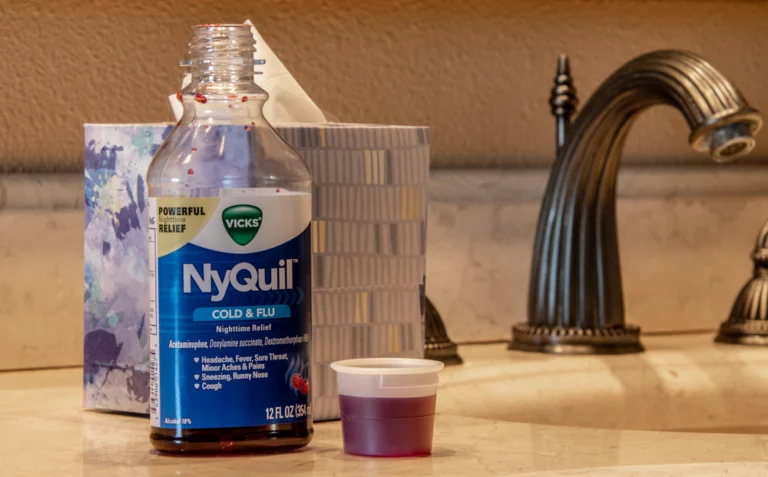Overcoming a cocaine addiction and avoiding cocaine relapse is never easy. An addiction to drugs like heroin, methamphetamine, or cocaine creates changes in the brain, rewiring it for addictive behavior. However, it is possible for one to overcome these changes and live a long life of sobriety. Fortunately, there are a variety of useful strategies a person can use to prevent a cocaine relapse well after their initial addiction treatment.
What is a Cocaine Relapse?
Like many other illegal drugs, cocaine is a powerful and highly addictive substance. Although its desired effects are short-lived, it has the potential to wreak havoc on the human body, especially when ingested repeatedly over prolonged periods of time. Cocaine addiction can lead to several serious health complications, including restructuring the brain.
Oftentimes, a cocaine addiction rewires the brain, reprogramming it for addictive behavior. Even after a person detoxes their body and receives addiction treatment, the brain is typically still structured to seek immediate pleasures. Unfortunately, this means it is usually easy for those living with cocaine addiction to relapse.
A relapse occurs when a person who has become sober returns to the substance or substances they are addicted to. This is dangerous for a number of reasons, primarily due to the effects an addiction can have on one’s health and well-being. While relapses do happen, especially when a person is facing challenging situations or circumstances, it is best to prevent them as much as possible to preserve one’s sobriety and overall well-being.

Strategies to Prevent a Cocaine Relapse
Preventing a cocaine relapse can be challenging and often takes consistent effort from a person living with a cocaine addiction; however, it can be more manageable through the use of proven relapse prevention strategies, including:
Addiction Counseling
Counseling is widely regarded as one of the most effective and beneficial options for anyone living with a disorder, including addiction. For individuals struggling with cocaine addiction, seeking the help of a counselor who specializes in addiction can be a crucial step toward recovery and preventing a cocaine relapse. These trained professionals offer more than just advice—they provide a safe, non-judgmental space where individuals can share their feelings, struggles, and experiences. Counselors who specialize in addiction understand the complexities of substance use disorders and offer empathetic listening, helping clients feel heard and understood during one of the most challenging times in their lives.
Addiction counseling not only helps individuals process their emotions but also works to uncover the underlying causes of the addiction. By identifying triggers—whether they are emotional, environmental, or social—counselors can help clients understand why they turn to cocaine and how to avoid situations that may lead to relapse. Moreover, counseling helps individuals develop healthy coping strategies tailored to their specific needs. These strategies can range from mindfulness techniques to cognitive-behavioral therapy (CBT) practices, giving clients practical tools to manage cravings, stress, and other challenges.
Oftentimes, those who engage in addiction counseling experience greater success in avoiding a cocaine relapse, as it provides the emotional support, structured guidance, and self-awareness necessary for long-term recovery. By building a trusting relationship with a counselor, individuals gain not only insight into their addiction but also the confidence and resilience to continue on their path to sobriety. With the right support, individuals can create lasting change and reclaim control over their lives, free from the grip of addiction.
Anticipate and Avoid Triggers
One of the most effective ways for a newly sober person to avoid a relapse is by learning to anticipate and proactively avoid their triggers. Triggers are situations, emotions, or environments that prompt cravings or the desire to use cocaine, and understanding these triggers can play a critical role in maintaining long-term sobriety. Often, people with addiction use drugs as a way to cope with stress, anxiety, or other negative emotions. For someone in recovery, it becomes essential to recognize that these stressors can act as triggers that might push them back into old habits.
A key component of avoiding a cocaine relapse is learning to anticipate stressful situations before they arise. This proactive approach allows a person to put strategies in place to manage stress without relying on substances. For instance, a newly sober person might identify certain work pressures, family dynamics, or social events as potential stressors and find healthier ways to cope, such as through deep breathing, meditation, physical exercise, or seeking support from a therapist or support group. Planning for these moments and developing a toolkit of coping mechanisms can be a game-changer in navigating difficult circumstances without turning to cocaine or other drugs.
In addition to avoiding specific triggers, it’s also important to avoid environments or social circles that may encourage substance use. This might mean distancing oneself from old acquaintances who still engage in drug use or choosing social activities that do not revolve around substance consumption. By anticipating and steering clear of these high-risk situations, a person in recovery is much more likely to stay focused on their goals and experience lasting success.
Ultimately, by understanding and avoiding triggers, a newly sober person can build a stronger, more resilient foundation for recovery. This proactive mindset helps reduce the risk of relapse and sets the individual up for greater success as they navigate the challenges of life without turning to cocaine or other substances. With time, practice, and the right strategies, a person can regain control over their life and continue making progress in their journey toward sustained sobriety.

Strong Support System
An addiction counselor is undoubtedly a valuable resource for someone with cocaine addiction, providing professional guidance, support, and therapeutic techniques to help maintain sobriety. However, counseling is just one piece of the puzzle. To truly sustain long-term recovery, it is essential for individuals to build and rely on a strong, supportive network that extends beyond just the therapist’s office. A well-rounded support system can play a crucial role in a person’s journey to stay sober, especially during challenging situations or moments of temptation.
Family and friends can provide emotional support, encouragement, and accountability, which are vital in the early stages of recovery. Having loved ones who understand the struggle and offer unconditional support can help an individual feel less isolated and more motivated to stay sober. Additionally, sharing experiences with others who have gone through similar challenges can help create a sense of community and belonging, which is often needed during recovery.
In addition to family and friends, having a sponsor or mentor in a recovery program, such as a 12-step group like Narcotics Anonymous (NA) or Cocaine Anonymous (CA), can be especially beneficial. A sponsor serves as both a guide and a source of encouragement, helping individuals stay focused on their goals and providing wisdom from their own experiences in recovery. Sponsors can offer valuable advice, lend a listening ear, and help navigate difficult times when cravings are strong or when life feels overwhelming.
Support groups are also an excellent way to build connections with others who understand the unique struggles of addiction. These groups provide a safe, non-judgmental space for individuals to share their challenges, celebrate successes, and learn new coping strategies. The sense of camaraderie and mutual support in these settings can be incredibly empowering and help individuals realize that they are not alone in their journey.
Beyond personal relationships, some individuals may benefit from community resources or aftercare programs that offer additional services like therapy, group sessions, or recreational activities. These resources can help reinforce the skills learned in addiction counseling and provide continued support during the recovery process.
Ultimately, recovery is not a solitary journey, and the strength of a support system can make all the difference. By building a network of understanding, empathetic individuals—whether they are family, friends, sponsors, or fellow recovering individuals—a person struggling with cocaine addiction can navigate the challenges of sobriety with greater confidence, resilience, and long-term success in preventing a cocaine relapse. With the right support, maintaining sobriety becomes more attainable, even in the face of adversity.
Meditation
Another effective strategy for preventing a cocaine relapse is mediation. The practice of meditation forces a person to be with themselves and to shut the world and other influences out. By practicing this art, those living in recovery often find that it helps them cope when their desire for cocaine use has been triggered.

Aftercare Services
Preventing a cocaine relapse is difficult, but professional help can make it easier. Many rehabilitation facilities across the United States provide aftercare services. These services typically take the form of meetings, counseling, and more. The goal is to help provide support to those in recovery long after their initial treatment. By engaging in them, a person with cocaine addiction or any other kind of addiction increases the likelihood that they will remain sober and successfully prevent cocaine relapse.
Searching for Relapse Prevention Services Near You?
If you or a loved one is in recovery or currently living with a cocaine addiction and in need of assistance, contact us today! At Knoxville Recovery Center, our team of addiction specialists offers a variety of effective treatments to help an individual enter recovery and stay in recovery. Contact us or give us a call today to learn more about how we can help.








